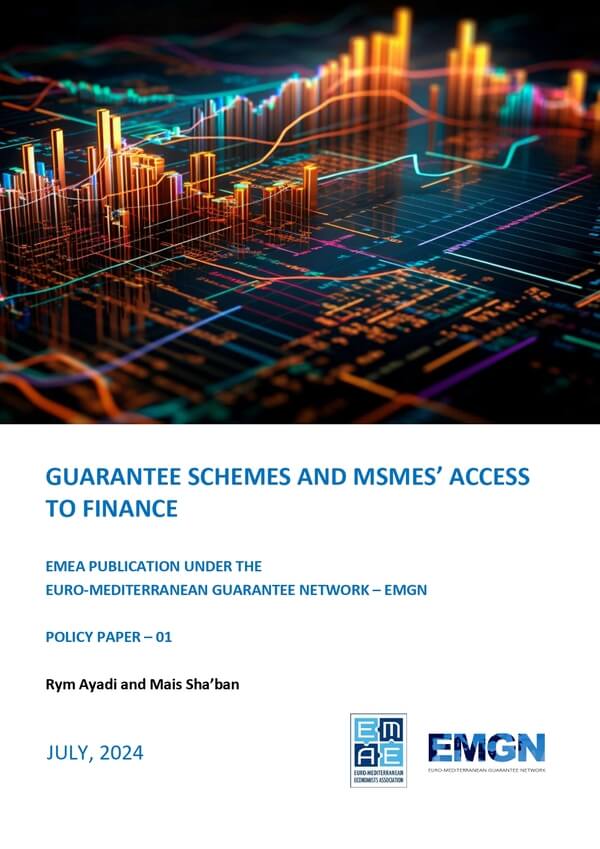The Euro-Mediterranean Economists Association (EMEA) has published a new policy paper under the Euro-Mediterranean Guarantee Network (EMGN) titled "Guarantee Schemes and MSMEs’ Access to Finance" The paper is co-authored by EMEA President Prof. Rym Ayadi, Professor at Bayes Business School, City University of London, and EMEA Research Fellow Dr. Mais Sha’ban, Associate Professor of Banking and Finance at Al-Zaytoonah University of Jordan.
Enhancing access to finance for Micro, Small and Medium Enterprises (MSMEs) is high on policy makers’ agenda around the world, due to their role in the overall development and inclusive growth of nations. MSMEs are an important sector in the MENA region and have contributed immensely to the region’s socio-economic development. As the largest employer in the region, MSMEs play a significant role in reducing unemployment rates and stimulating economic development and innovation. However, their viability and growth can be restricted by lack of access to credit and equity, which results in a less vibrant private sector (Ayadi et al., 2021). In particular, MSMEs in emerging economies identify access to finance as a key barrier to their growth. According to the SME Finance Forum, the MENA region has the highest proportion of MSME finance gap compared to potential demand, measured at 85%. Access to credit for MSMEs is limited by a number of factors, including information asymmetries, as these enterprises are more opaque than large firms, and lack of collateral (Ayadi & Shaban, 2021; Barajas et al., 2020).
One of the key tools used by regulators and policy makers to enhance MSMEs’ access to finance is guarantee schemes. These schemes act as mechanisms of risk transfer, under which a guarantor (the guarantee scheme) ensures the lender (financial institutions; mainly banks) against a proportion of the possible losses incurred when extending a loan. This helps banks overcome collateral and information asymmetry constraints. The role of Credit Guarantee Schemes (CGSs) became clear during the COVID-19 crisis, as governments in the region provided financial support to credit guarantee schemes, to channel them to sectors in need (Ayadi & Sha’ban, 2021). Hence, the development of CGSs in the region can have a clear impact on MSME access to finance. In recent years, CGSs witnessed significant growth, not only in terms of volume but also in product innovations, operations and digitalisation.
This policy paper provides an analysis of the role of CGSs in promoting access to finance for MSMEs and the impact of digital strategies. First, this paper provides an overview of MSME financial inclusion in the region and the challenges faced by these firms in accessing formal banking services. Second, it reviews the design and performance of guarantee schemes operating in Egypt, Tunisia, Lebanon, Jordan, Morocco and Algeria (EMGN members from the Southern Mediterranean). The analysis is based on a comprehensive literature review, desk research, a survey and meetings conducted with guarantee schemes operating in these countries. The paper clarifies the role of guarantee schemes in enhancing access to finance for MSMEs and how digital solutions have the potential to enhance their outreach. Finally, it provides policy recommendations on how to strengthen their role.


